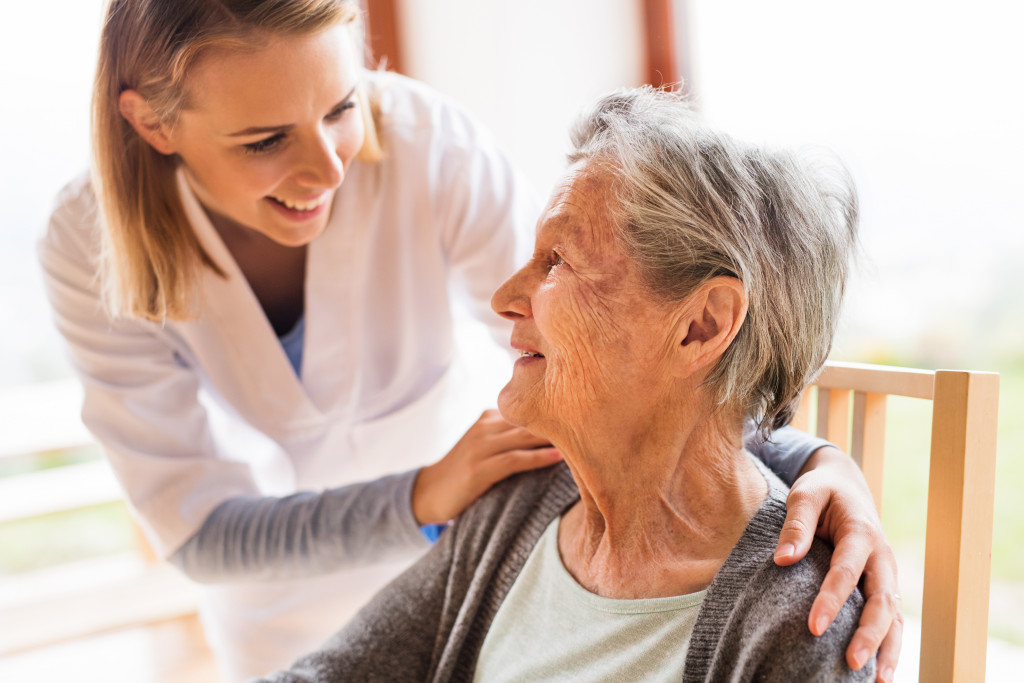- Understanding the core needs of your recipient is essential for being a good caregiver.
- Establishing a daily routine can help make the day smoother and more predictable for both you and the person you’re caring for.
- Effective communication techniques, such as active listening and using simple language, can improve the caregiving experience.
- Increasing empathy in caregiving helps the person you’re caring for feel supported and understood.
If you are a caregiver, you know how much your role matters. You make a big difference in someone else’s life. But, it’s not always easy, right? That’s why finding ways to do better is important. This helps you give the best care possible. This blog post will talk about some practical ways you can improve your caregiving skills.
Understanding the Core Needs of Your Recipient
To be a good caregiver, first, you need to understand the person you’re helping. They have their own needs and wants. Remember, what works for one person might not work for another.
Establishing a Daily Routine
One good step is making a daily routine. This means doing things at the same time each day. Why? Because it makes everything predictable. When the person you care for knows what to expect, they feel more at ease. So, try to plan the day. When is mealtime? What time is best for a bath? When do they like to rest? Keeping things consistent makes your job smoother.
But, there’s a catch. It would be best if you were flexible, too. Sometimes, things don’t go as planned, and that’s okay. Adjust the routine as needed. The goal is to make the day easier for both of you.
Effective Communication Techniques

Another important part is how you talk with the person you’re caring for. Good communication helps a lot. It’s not just about speaking clearly. It’s also listening to them. Pay attention to what they say and how they feel. This helps you know what they need.
For example, maybe they are worried about something but not saying it directly. If you listen well, you can understand these hidden worries. Then, you can talk about it and help them feel better. Also, when you speak, use simple words, especially if they struggle with understanding complex ideas. This makes sure they know what you’re saying.
Enhancing Professional Caregiving Skills
Being a caregiver isn’t just a job; it’s a role that requires your heart and mind. To do it well, you have to grow your skills. This isn’t just about doing tasks. It’s about how you connect with the person you’re caring for. It makes both their life and their job more rewarding.
Increasing Empathy in Caregiving
One big part of caregiving is empathy. This means feeling what another person is going through. When you show kindness, the person you’re caring for feels that they’re not alone. How can you show more empathy? Start by really paying attention. Listen with your heart. Try to see things from their point of view.
When they’re sad or frustrated, you might say, “I see this is tough for you.” These simple words can be powerful. They help the person know you understand their feelings. This emotional support may be just as important as your physical help.
Medication Training for Support Workers
Another critical area is knowing how to handle medicine properly. This is where “medication training for support workers” comes in. You need to know more than just what pills to give and when. You must understand what each medicine does and what to watch out for. For instance, some drugs have side effects. Others cannot be taken together.
Getting proper training helps you avoid mistakes. It makes sure the person receives the right medicine the way they should. This isn’t only about safety. It’s also about the person’s comfort and health. So, if you haven’t had medication training yet, it’s a good idea to seek it. It’s an important part of your skill set as a caregiver.
Managing Personal Well-being as a Caregiver
Think about yourself. Yes, you’re taking care of someone. But remember, you also need to take care of yourself. If you’re tired or stressed, your caregiving won’t be as good as it can be. You might miss things or not have enough patience. That’s why your well-being is essential.
Balancing Stress and Responsibilities

As a caregiver, you have a lot on your plate. It’s normal to feel stressed sometimes. But too much stress isn’t good for you or the person you care for. So, it would be best if you found a balance. This might mean taking breaks when needed—or talking to someone about your worries. When you’re feeling good, you can give your best to the person depending on you.
Finding this balance isn’t always easy, right? But it’s part of your journey in caregiving. And remember, it’s okay to ask for help. You’re doing an essential job; sometimes, the best way to do it is by making sure you’re okay too.
The Bottomline
Improving your caregiving skills involves understanding, empathy, proper training, and self-care. Every step to better yourself is a step toward better care for someone else. Keep learning, growing, and taking care of yourself, too. In caregiving, everyone does better when you’re at your best.

